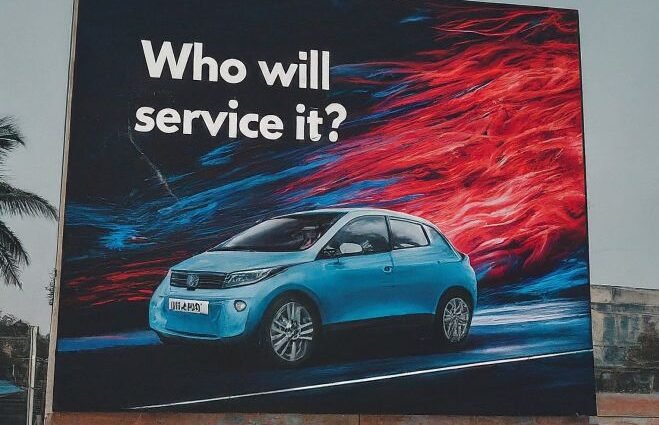If your electric vehicle (EV) stops charging during a trip, you can’t simply call a roadside mechanic to fix it and continue on your journey and when EV owners have voiced concerns about faulty components in their vehicles, the solution has been to replace the parts with new ones rather than repair them.

Despite the increasing popularity of EVs, maintenance for these vehicles is still in the early stages of development.
Electric vehicles are more advantageous than vehicles with internal combustion engines (ICE) because they have significantly fewer moving parts, resulting in lower repair and maintenance costs compared to ICE cars. The typical maintenance expense for an electric vehicle with a mileage of 50,000 km is approximately Rs 44,000, whereas it would be around Rs 56,000 for a petrol car and Rs 78,000 for a diesel car.

Currently, car manufacturers depend on key suppliers to promptly replace defective parts, which are often refurbished and reused. Some companies have opted to work directly with franchised partners for service. Traditional car manufacturers have invested in training technicians and providing technology and equipment to their after-sales network, while electric vehicle companies are still working on establishing their workshop network.
Ola Electric, an electric scooter major, has over 400 service centers and plans to add 200 more in the next few months. They are also offering home service options and so have deployed mobile service vans for immediate assistance to our customers in smaller cities.

Service centers are also evolving as customer-education hubs. For instance manpower at Tata Motors, the largest auto major by volume sales in the passenger EV space, goes through training programs not only on the product side but also for soft skills to provide an exclusive experience to customers. Customer education covers aspects like maintenance costs, availability of parts, warranty coverage and charging infrastructure.
The future of roadside mechanics who are skilled at quickly and affordably fixing cars may be uncertain as electric vehicle sales increase. However, car manufacturers believe that traditional combustion engine vehicles will still require maintenance, and many of these mechanics may adapt and continue to be relevant in the EV industry too.
Reference- Economic Times article, Inside EVs, Moneycontrol website, Business Standard






